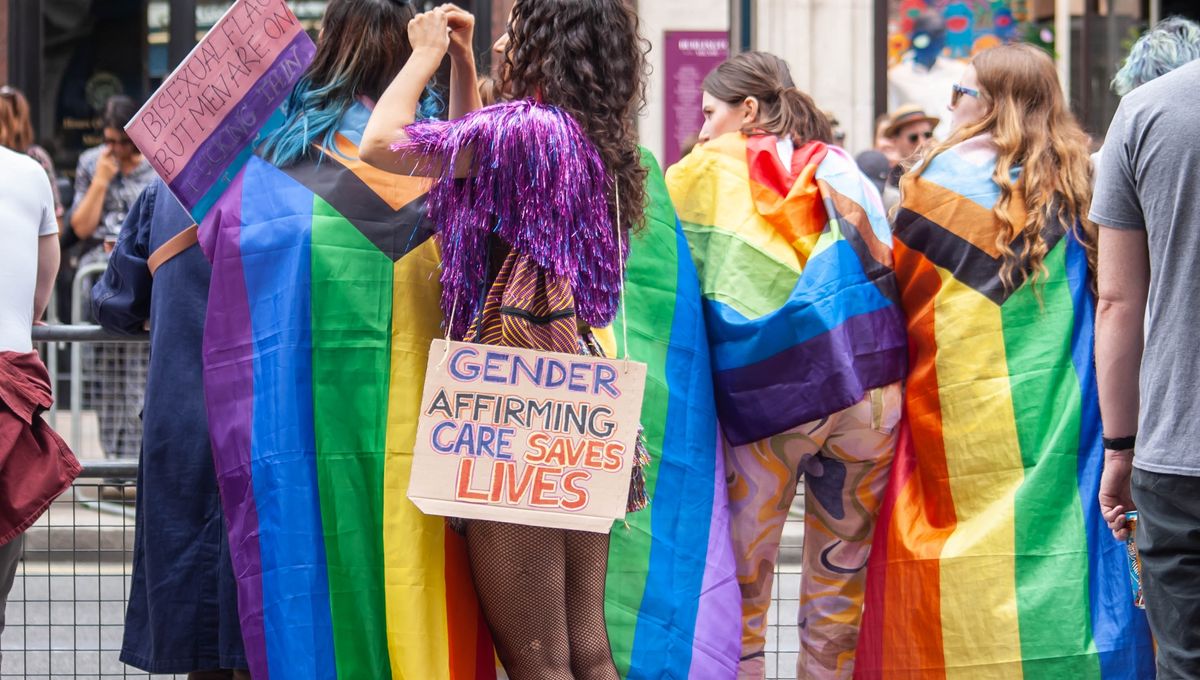
Gender-affirming care continues to be proven to provide a high level of satisfaction and incredibly low levels of regret. The latest study looked at patients who underwent gender-affirming mastectomies from 1990 to 2020 and followed up about how they have felt since the procedure.
A double (or bilateral) mastectomy is considered a major surgery, most commonly used as a treatment (or sometimes to prevent) breast cancer no matter the gender of the patient. It is also a common gender-affirming surgery for trans-masculine and non-binary individuals. The team found 235 people eligible for the study, with 139 responding to the study authors. Most of the people surveyed who underwent the procedure are men (88), but there were a number of non-binary (17) and gender non-conforming individuals (34) who responded too.
The researchers used several statistical surveys to characterize how satisfied or not individuals were with the surgeries. While there are some dominant identities in the samples, there are a lot of variations in terms of experience with and after the surgery. Some people had complications following the procedure, including a small minority that had to have follow-up surgery.
The “lack of dissatisfaction and regret” was so consistent that the researchers admit that it prevented them from performing more complex analyses. On a 5-point scale, the mean satisfaction was 4.8 and the median value was 5. On a 100-point scale, with 100 representing full regret for the procedure, the mean score was 4.2 and the median was zero.
“The lack of variation in scores impeded the ability to perform a statistical analysis to establish characteristics associated with satisfaction with decision and regret. There were no individuals who underwent reversal procedures. While prospective, multicenter work is needed, these results are consistent with previous ad hoc studies and affirm the overwhelmingly low levels of regret following gender-affirming surgery,” the authors, led by Dr Megan Lane of the University of Michigan in Ann Arbor, wrote in the paper’s conclusions.
The results are in line with findings from other studies that report dissatisfaction with gender-affirming surgeries in about 1 percent of cases. It also challenges the notion, claimed without scientific evidence, that regrets around gender-affirming procedures might not manifest for many years.
The research team actually compared their work with 44 other studies focusing on surgery regrets unrelated to gender-affirming care. They found that only one study had a lower regret rate, on surgery to treat urinary incontinence, which had a mean score of 2.5. A previous study found that 18 percent of those who underwent knee replacement surgery experience regret. And yet, nobody is legislating or calling for an end to knee replacement surgery.
An accompanying commentary stresses the double standard seen when it comes to gender-affirming care, where there is a disproportionate focus in the media and legislative bodies on regret. The work shows that regret is multifactorial and it is extremely rare to be about one’s identity, and that beyond the surgery, trans and non-binary people experience stigmatization and social exclusion for being true to themselves.
“Public health efforts should bolster support systems for at-risk populations, and medical professionals should work to identify vulnerabilities associated with social determinants of health rather than deny medical care over exaggerated claims regarding the possibility of procedural regret,” the invited commentary authors wrote.
There are some limitations to the study, such as the lack of consistency in follow-up times between people in the study. The most recent procedure took place 2 years before the study, while the oldest was performed 23.6 years before this work. The team also was limited to procedures within their institutions, so they might not capture the full experience of respondents. There is also the question of non-respondents and how unaccounted responder bias might skew the results. The team would like to see a multicenter study with multiple practices to ensure the generalizability of this result.
The study is published in the journal JAMA Surgery.
Source Link: Gender-Affirming Mastectomies Have An "Overwhelmingly Low" Regret Rate